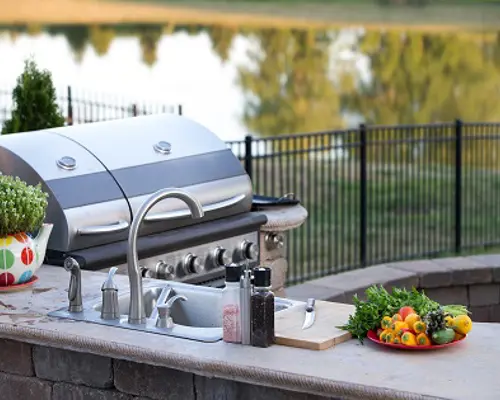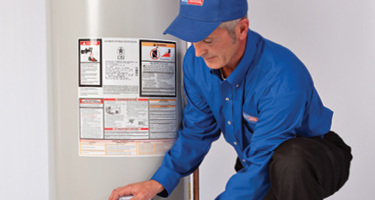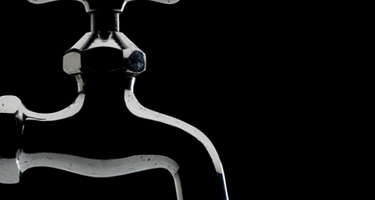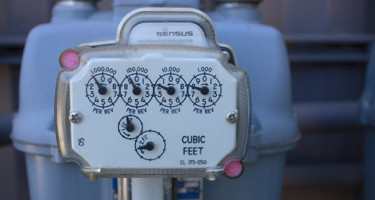
Summertime is the perfect time to grow your backyard garden, spend poolside family time or host a neighborhood cook-out. But all the extra stress on your outdoor plumbing during the hottest months of the year can take its toll. So take these extra steps to protect your outdoor plumbing during the summer.
Sprinkler Systems
Landscape irrigation is a major source of water waste because most homeowners don’t know how to use their sprinkler systems efficiently. That’s because homeowners only increase the water pressure in their system in dry conditions, but fail to decrease the pressure in moist conditions. Watch for signs of overwatering your lawn, like a spongy feeling under your feet, water runoff into the street or standing puddles of water. Likewise, your sprinkler system is wasting water if it’s spraying anything besides your landscape. So if you consistently notice water on your sidewalk, driveway or house, you will need to readjust your sprinkler heads.
Remember that while keeping your sprinkler on a timer is convenient, it can also cause major waste by watering when your landscape doesn’t need it. So consider investing in a weather-based irrigation controller (WBICs) that uses weather data to adapt your irrigation schedules, pausing it for a few days after heavy rainfall. The Environmental Protection Agency labels WBICs that have been certified by a third party to meet WaterSense efficiency criteria.
Swimming Pools
With proper maintenance, your pool is your backyard’s best feature. And keeping your pool water clean is the key to protecting its plumbing. You know that your filter is responsible for removing dirt, leaves and other debris from your pool’s water, so make sure you’re doing your part to keep it operating properly. You should clean out your filter once a week by turning it off, removing its cap, lifting out its basket, and emptying its contents. Once a month, you’ll also want to clean out the pipes used by your filter system by setting your filter to “backwash,” removing the leaf basket and cleaning it out. Then turn your pump on and let it run until the waste pipe water runs clear.
You also should schedule a service appointment every year, whether or not you think your pool needs it. Your pool technician may be able to spot minor issues — such as chemical imbalances, mechanical failures and pool cover tears — before they become major problems.
Outdoor Kitchens
If you’ve gone through the process of installing plumbing for your outdoor kitchen, then you probably already know that maintaining an outdoor sink is much different than maintaining an indoor one. Outdoor sinks experience a regular buildup of dirt, pollen, rain and more — and because they are so exposed to the elements, they need to be cleaned more regularly.
Keep in mind that stainless steel is durable, but it’s not indestructible. So when cleaning your outdoor sink, try to avoid harsh chemicals, steel wool, and wire brushes that may scratch it. Instead, try wiping your sink with a paste of baking soda and water, then rinsing it with vinegar to disinfect.
Gutters and Downspouts
Your gutters are designed to divert rainwater away from your house. But if you’re not staying on top of cleaning your gutters, your yard could be in big trouble when summer rains arrive. Even worse, the water could spill over your gutter sides and into your roof and walls. The resulting backup could lead to major headaches like leaky ceilings, rotting siding and even damaged foundation! If you’ve noticed water isn’t flowing freely out of your downspout, then it’s past time for a cleaning! And if you shutter at the thought of hand-clearing them, you can always ask a professional to do it for you. Keep in mind that some gutters may need to be cleared more than once a season, especially if you live around a lot of trees.
Your home’s plumbing is a complicated network of pipes, valves, drains, and taps that work together to keep water flowing. And outdoor plumbing problems can often overflow into other areas of the home. In order to make sure your plumbing keeps running smoothly, regular home plumbing system inspections are recommended. Our professional plumbers know what kinds of inefficiency issues to look for, and can recommend the best option for repair or replacement. For a home plumbing inspection you can count on, give the expert plumbers at ARS®/Rescue Rooter® a call at 866-399-2885.






